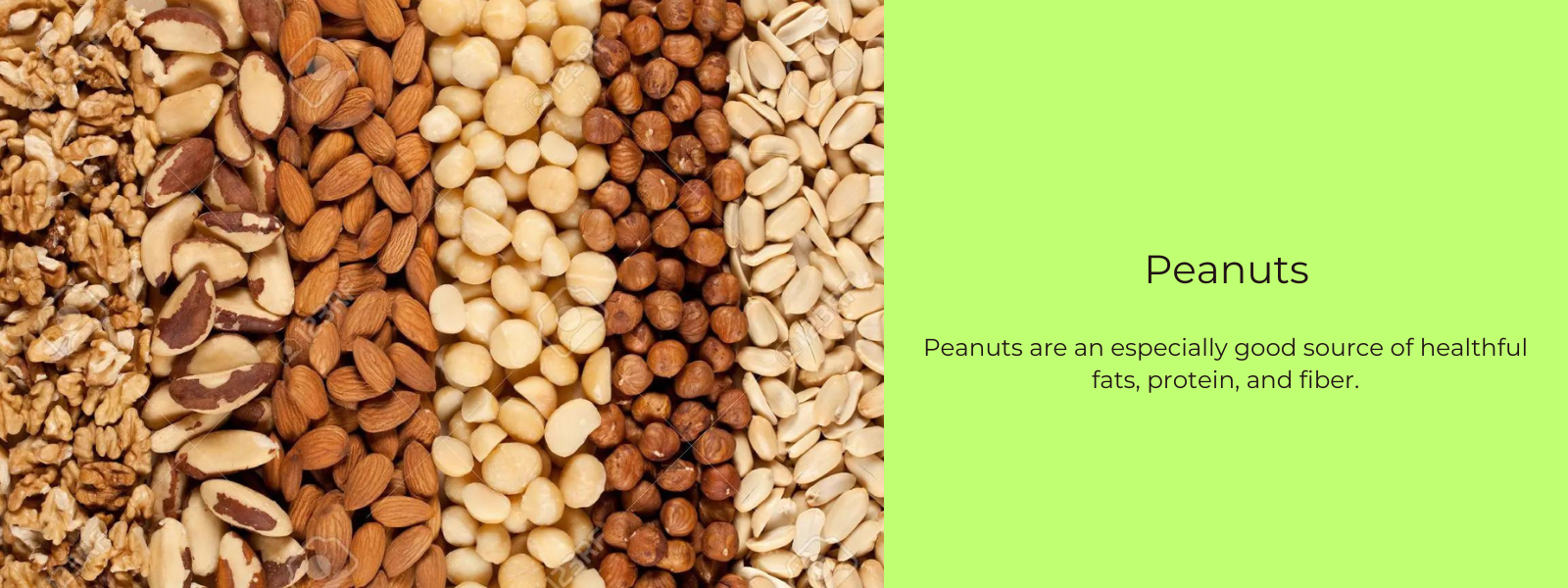The cashew nut is native to Brazil but is now widely cultivated in other countries such as Vietnam, India, Nigeria and the Ivory Coast. The nut is the seed of the cashew fruit, which grows on the perennial cashew tree (Anacardium occidentale) along with the cashew fruit itself.
Cashews can be eaten raw as a snack, combined with other nuts to make nut mixes, or roasted and ground into cashew butter or cashew milk, among other things. When included in a balanced diet, cashews can be beneficial.
They play a crucial role in all of our holiday parties. 'Kaju ki barfi' is an essential part of Diwali, and it's hard to conceive of the holiday without it. In the past, when nomads didn't know how to eat the nut, they threw it away and focused on the fruit instead.
Table of Contents
What is cashew?
Cashews, which come from a plant native to Brazil, are a nut that are used in various Indian gravies due to their high mineral content. The cashew tree, which was brought to India by traders, may reach extreme heights but has a trunk that is sometimes crooked. Large, ripe apples dangle from the trunk, with the cashew nut attached to the bottom. The nut is readily available all year and retains its quality for a long time provided it is kept in a cool, dry place. Both the nut and the fruit can be used in a variety of ways. Although today sold at high costs, this nut was once known as the poor man's plantation because it was used to produce rich and flavorful curries and could be eaten straight from the roasting pan.
Nutritional value of cashew:
Cashews have 553 calories per 100 grams serving. There are 44 grams of fat, 8 grams of which are saturated, 8 grams of which are polyunsaturated, and 24 grams of which are monounsaturated. It has no cholesterol and no fat. Sodium content is 12mg, and potassium content is 660 mg.
The 30g of carbohydrates in cashews are broken down into 6g of sugar and 3.3g of fibre. There are 18g of protein, 3 percent of the RDI for calcium, 37 percent for iron, 20 percent for vitamin B-6, 73 percent for magnesium, and zero percent for vitamins A, C, D, and B-12.
Health benefits of cashew:
Helps Maintain Diabetes
Consuming cashews on a regular basis aids in the management of diabetes. Cashews aid in glucose regulation since they contain a lot of fibre. Nonetheless, because of their high calorie content, cashews should be consumed sparingly.
Healthy for the Heart
You probably already know that antioxidants are beneficial to your heart. Cashews are beneficial to cardiovascular health because of their high antioxidant content. Moreover, the phenolic chemicals in cashews aid in the development of healthier blood arteries.
Improves Defense Mechanisms
It would be remiss of us not to add that the cashew nut helps strengthen the immune system. This nut has a high concentration of zinc and other vitamins that work together to strengthen the immune system.
Cashews for Glossy Hair
Cashews have a secret power that will make your hair healthy and lustrous. Indeed, cashews are rich in copper, which boosts melanin in the hair and brings out its natural shine.
Improves mental health
Consuming cashews is an excellent choice for improving mental health. Cashews, which are rich in fatty acids and other nutrients that benefit the brain, can improve cognitive performance. If you want a mental boost, try snacking on some cashews that you soaked overnight.
Increases bone flexibility
Bone health is greatly improved by eating cashews. They're loaded with the vitamins, minerals, and nutrients our bones need to flourish. Cashews' high copper content promotes the body's collagen formation, which in turn increases bone flexibility.
Lowers blood pressure
It has also been discovered that cashews can help lower blood pressure. The inclusion of elements like potassium, magnesium, and unsaturated fats cause this effect. Together, they help lower blood pressure throughout the body.
Protects Against Blood-Related Illnesses
Consuming cashew nuts on a regular basis also reduces your chance of developing a blood problem. This tasty nut is a great resource for the minerals iron and copper. Iron deficiency is prevented and free radicals are fought with the help of both of these nutrients.
Stimulate sperm production
The high zinc content of cashews makes them a healthy snack for males. In men, an elevated zinc level improves their fertility by stimulating sperm production.
Helpful for Your Eyesight
The advantages of cashews do not end there. This unusual nut has been shown to enhance eyesight when consumed. Antioxidants like lutein and zeaxanthin found in abundance in these help shield the eyes and skin from UV damage. Eating cashews consistently has been linked to a decreased risk of developing cataracts and macular degeneration.
Uses of cashew:
Cashews are a common ingredient that may be found in both sweet and savoury dishes. You can eat them raw, roasted, and/or salted, or grind them up and use them in a wide range of vegetarian and non-vegetarian cuisines.
The cashew nut shell liquid is a byproduct of the cashew nut harvesting process and is used in the manufacture of a wide variety of products, including paints, pesticides, pharmaceuticals, resins, anti-termite treatments for wood, and polymers. Medically, it is used to cure toothaches, ringworm, scurvy, leprosy, warts, and elephantiasis due to its antimicrobial properties.
The bark and leaf of the cashew tree are used medicinally to treat gastrointestinal issues like diarrhoea and colic. Blood sugar and blood pressure can both be lowered with the use of the leaf extract. A bark infusion can be used to heal oral ulcers, a sore throat, and even the flu due to its astringent characteristics. An anti-pyretic can be made from boiling the tree's leaves in water, which can then be applied to various aches and pains.
Apple of the Cashew The cashew fruit, also called the cashew apple, is antibacterial and effective in the treatment of gastritis and stomach ulcers. The high vitamin C concentration of its juice makes it useful for the treatment and prevention of scurvy. Dysentery can also be cured by drinking a tea derived from the juice. It is also effective in treating newborn thrush.
Sauces, curries, jams and even vinegar and spirits are all made using cashew apples in South America. Because many people are allergic to the skin, you must steam or boil it before eating it.
The oil pressed from cashew nuts is useful in its own right. It's effective in healing dry, brittle heels. Cashew seed powder has antivenin properties and can be used to treat snake bites.
Side-effects of cashews:
Cashews are high in oxalate salts, which interfere with calcium absorption and contribute to kidney stones. Kidney stones can occur when too much calcium isn't absorbed.
Most people are sensitive to nuts, and since cashews are a type of nut, they can develop an allergy to them. Some sensitivities might be rather severe or relatively modest. When skin comes into touch with cashews, it can trigger an allergic reaction known as contact dermatitis, which manifests as red, itchy bumps. Nausea, vomiting, coughing, abdominal pain, and diarrhoea are all possible symptoms of a cashew allergy. Those who are allergic to cashews often experience breathing difficulties as well. Nevertheless, anaphylaxis is the most severe reaction to cashews. It's a sudden response that, if one isn't careful, can take over their entire physical being. It can cause a person to pass out, have laboured breathing, have their tongue and throat swell up, and make them look very pale. Getting medical help is essential for this disease.
FAQs on Cashews:
How many cashews are safe to eat daily?
A daily serving of cashew nuts for an adult is capped at a quarter cup. Some people experience adverse health effects when they consume more than a quarter cup of cashews every day.
Is it healthy to consume cashews on a daily basis?
Cashew nuts are fine to eat every day; nevertheless, they should be consumed in moderation. Protein, iron, copper, and fibre are all easily absorbed from them. Individuals who include cashews in their diet on a regular basis report feeling more energised and less sick during the day.
When is the best time to have cashew?
Cashew nuts are at their peak in the morning. These nuts are a great source of sustained energy since they contain a high concentration of carbs.
Is it okay to consume cashews on an empty stomach?
Eating cashew nuts on an empty stomach is not advised because they can raise the stomach's PH. There's a chance this could trigger stomach-based allergy reactions.













Leave a comment